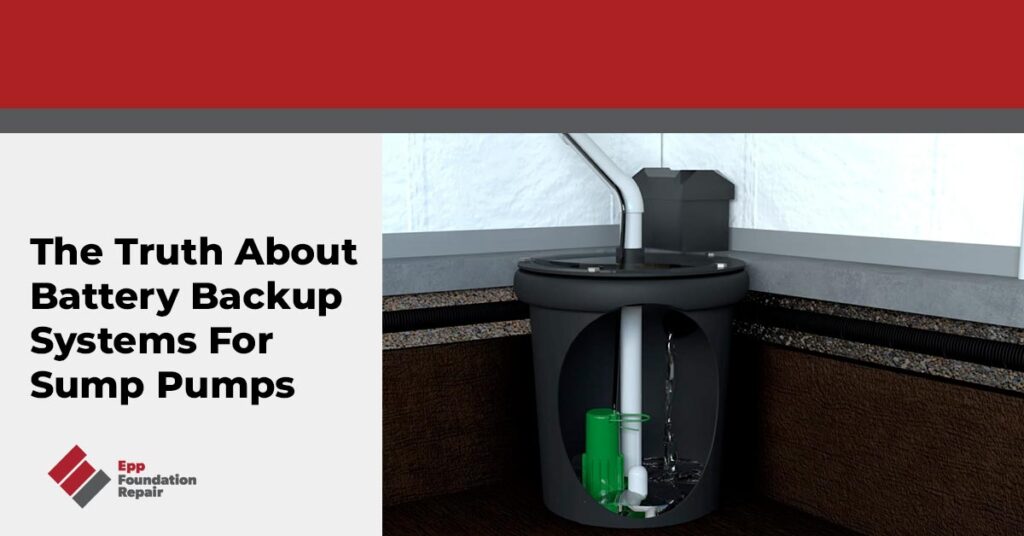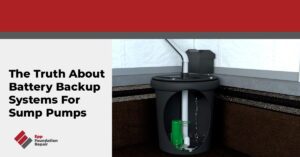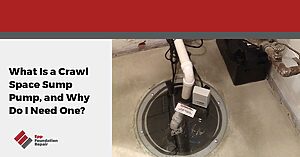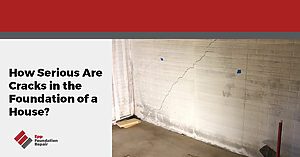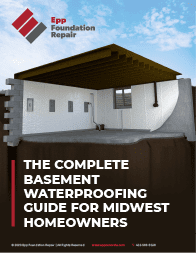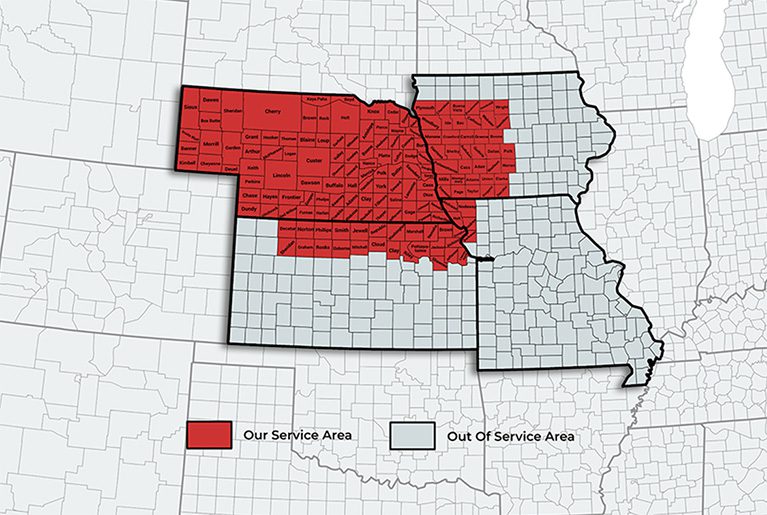Looking for information about battery backup systems for sump pumps? If so, don’t hit that back button because you’ve landed on the right page. In this article, we’re going to review what sump pumps are, why they fail, what you need to know about battery backup systems for sump pumps and more.
What Is A Sump Pump?
A sump pump is designed to remove excess water that accumulates in the ground around the foundation. This prevents any excess moisture from entering the basement or crawl space, where it can cause trouble.
Sump pumps are typically installed in a pit or basin at the lowest point of the basement or crawl space. They are designed to automatically turn on when the water level in the pit reaches a certain height and then pump the excess water out of the area through a discharge pipe. Most sump pumps are powered by electricity, but some are equipped with battery backups to ensure they can continue functioning during a power outage.
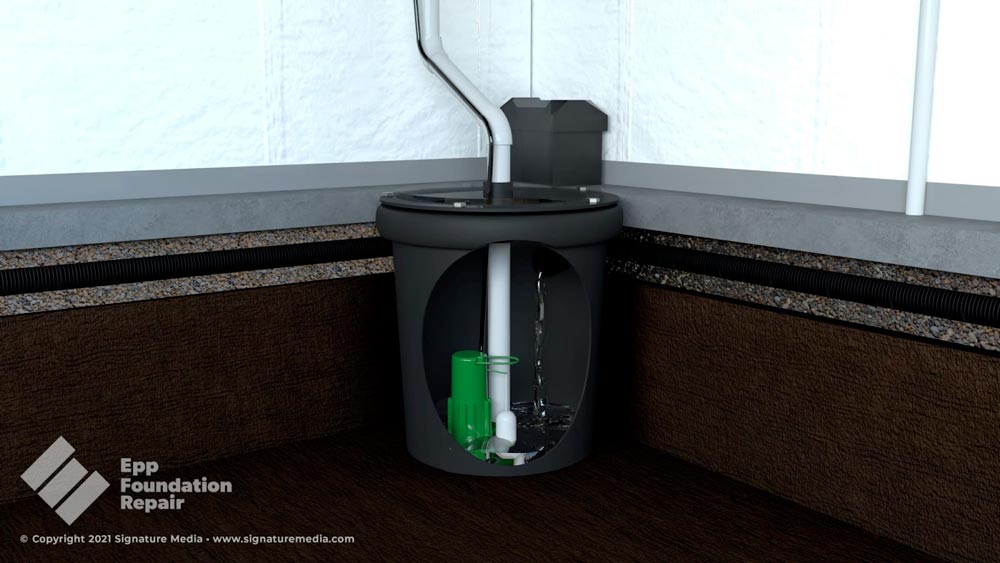
Sump pumps are essential for homeowners who live in areas prone to flooding or heavy rain. They can help prevent costly damage to a home’s foundation, walls, and flooring and protect personal belongings stored in the basement or crawl space. Investing in a high-quality sump pump and having it installed by a professional is a wise decision for any homeowner looking to protect their property from water damage.
Two Main Types Of Sump Pumps: Submersible And Pedestal
Submersible sump pumps are installed in the pit and are designed to be entirely submerged in water while they operate.
Pedestal sump pumps, on the other hand, are mounted on a small platform above the pit with a long shaft extending down into the water to pump it out.
For more information, see Sump Pumps, How They Work, And Sump Pump Alternatives.
Why Do Sump Pumps Fail?
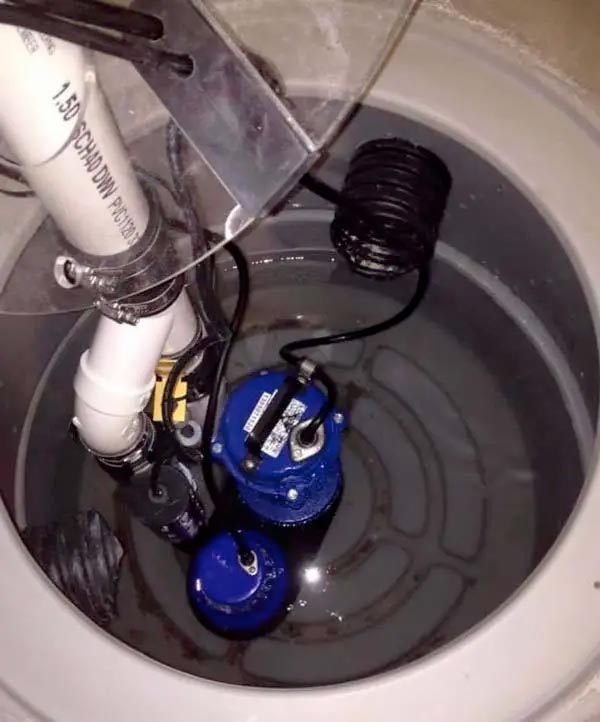
Sump pumps can fail for various reasons, including the following:
One of the most common reasons for sump pump failure is power outages. If the electricity goes out during a storm, the sump pump won’t be able to function correctly, leaving basements and crawl spaces vulnerable to flooding. To avoid this, many people install a backup power supply, such as a battery or generator, to keep their sump pumps running during power outages.
Another common cause of sump pump failure is clogging or jamming. Over time, debris, such as dirt, rocks, and leaves, can accumulate in the sump pit, interfering with the pump’s ability to function effectively. Regular maintenance – including cleaning the sump pit and checking the pump for obstructions – can help prevent these issues.
Additionally, sump pumps may fail due to mechanical problems, such as a malfunctioning float switch or a broken impeller. In these cases, having the pump inspected and repaired or replaced by a qualified professional is essential.
What Is A Sump Pump Battery Backup System?
A sump pump battery backup system is a device that provides an alternative power source for your sump pump in case of a power outage or electrical failure. It’s a necessary addition to your sump pump system, ensuring your basement and home remain dry.
A sump pump battery backup system consists of a battery-powered backup pump alongside your electric sump pump. This battery-powered pump kicks in when the primary pump fails, and it can usually work for up to several hours, depending on its capacity and the amount of water that needs pumping. Some sophisticated battery backup systems also offer alarms and alerts to notify you when the backup system is in use to ensure you stay aware of your pump’s activity.
Many factors can cause power outages, including storms, utility grid failures, and natural disasters, making a sump pump battery backup system a wise investment for any homeowner. It can save you from potential water damage and costly repairs and provide peace of mind, knowing that your basement and home are protected even during power cuts.
Do You Really Need A Battery Backup System For Your Sump Pump?
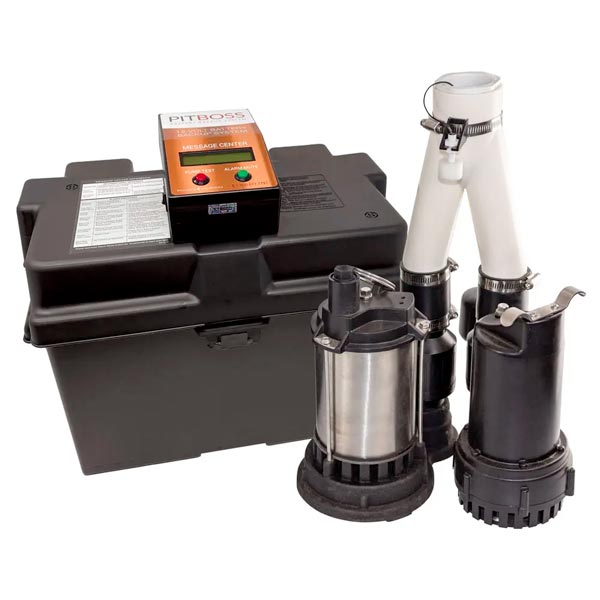
Yes, you need a battery backup system for your sump pump, and here’s why:
A sump pump is critical in preventing groundwater from seeping into your basement or crawl space. When a sump pump fails due to power outages, the results can be catastrophic, leading to flooded basements, water damage, and mold. In areas prone to severe weather conditions, such as heavy rainfall or snowstorms, power outages happen frequently, threatening your sump pump’s functionality. That’s where a sump pump battery backup system comes in.
A battery backup system provides your sump pump with a secondary power source during an outage. It ensures that your sump pump will continue to pump water out of your basement or crawl space, even during power failures. A battery backup sump pump can function for several hours, giving the utility company enough time to restore power.
Not only do battery backup systems provide peace of mind, but they also save you from the costly repairs and water damage accompanying sump pump failure. Even an inch of water in your home can cause thousands of dollars worth of damage. A battery backup system can save you time, energy, and money that might have been spent on repairing damage to your house.
Sump pump battery backup systems come in different sizes and capacities, making it easy to find one that fits your sump pump’s requirements.
For more information, see Sump Pump Failure: What Homeowners Need To Know.
How Long Should A Sump Pump Last?
On average, a sump pump should last between 7-10 years, but depending on the usage, it can last 5-15 years.
Factors that can affect a sump pump’s lifespan include the pump’s quality, the frequency of use, the mechanical condition, and the general maintenance of the pump. A well-maintained sump pump can last longer than one that continues to operate under stressful conditions.
Therefore, it’s essential to schedule regular maintenance, including cleaning its discharge line, inspecting the battery backup system (if present), watching for clogs or obstructions in the intake area, and checking the pump’s motor.
Additionally, it’s essential to ensure that the sump pump is correctly installed and receives enough electricity to operate properly.
Signs Your Sump Pump May Need To Be Replaced
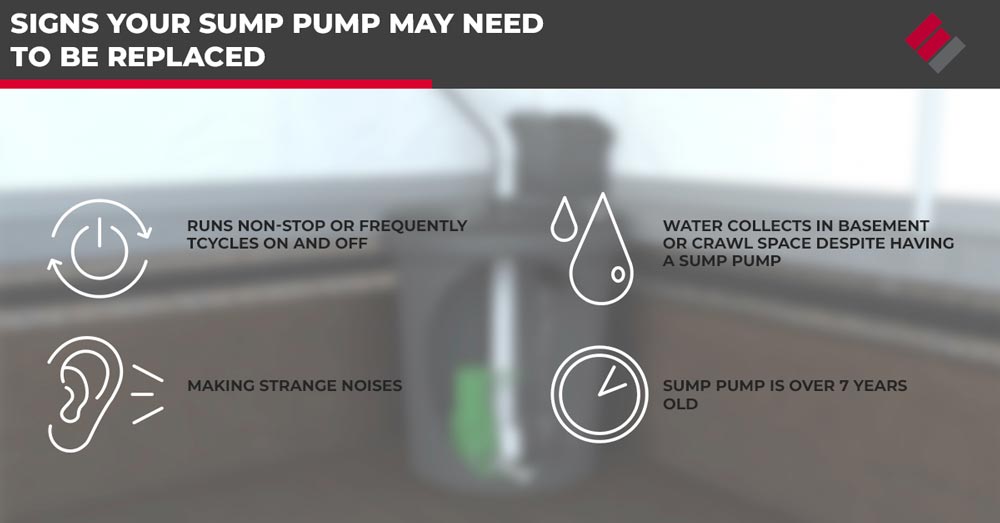
Some of the signs your sump pump may need to be replaced include the following:
- The first sign that your sump pump may need to be replaced is if it runs non-stop or frequently cycles on and off. This indicates the pump is struggling to keep up with the volume of water it’s trying to remove, causing it to overwork and eventually fail. Constant cycling can also occur if the pump’s switch is stuck.
- Another sign your sump pump needs replacement is if it’s making strange noises. This could indicate the motor bearings are worn-out or the impeller blades are broken. A defective impeller may lead to an ineffective pump failing to drain water efficiently.
- If water begins to collect in your basement or crawl space despite the presence of a sump pump, this is a clear indication the pump has failed. This could occur if the pump cannot function due to burnt-out motors or clogged impellers.
- If you’ve been using your sump pump for over seven years, it may be time to replace it. Regular maintenance may extend the life of the sump pump, but eventually, like any mechanical item, it will fail. Replacing the sump pump before the problem escalates is crucial and can save you from potential water damage to your basement or crawl space.
If you’re thinking about a battery backup system for your sump pump, contact us today to schedule an evaluation. Since 1994, we’ve helped clients in Lincoln, Omaha, Southeastern Nebraska, Northwestern Missouri, and parts of Northeastern Kansas with foundation repair, basement waterproofing, crawl space encapsulation and concrete leveling for their homes.

